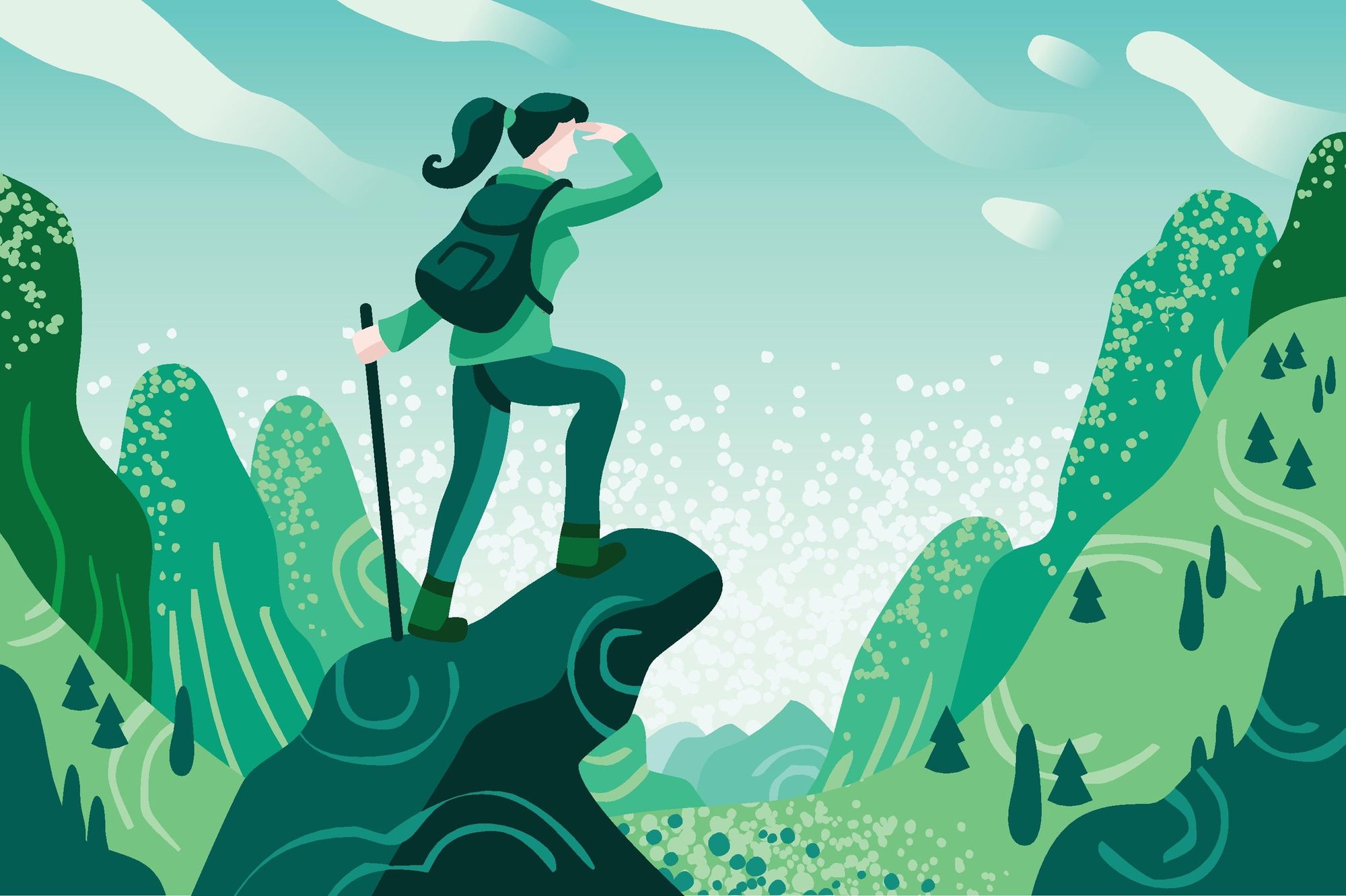After graduating from university, I went on a solo trip to Mexico. If there is a ‘find yourself while travelling’ bingo card, I would have got a full house. Shave all your hair off. Tick. Volunteer on a permaculture project. Tick. Have a romance with someone from another country. Befriend fire performers living on a converted school bus. Wear white robes to climb a mountain, for reasons which have long escaped me. Tick, tick and tick.
Did I find myself? Not in these new age cliches. I grew my hair back. Robed ceremonies haven’t featured in my life since and I never did learn to spin fire properly. But volunteering in various eco retreats did give me a love of gardening. And I recorded all my experiences in my journal so diligently that it rekindled a dormant passion for writing. Months of travelling solo and making my own (usually poor) decisions meant I got to know myself a little better.
Before we ask if you always have to ‘find yourself’ while travelling, it’s important to work out what the phrase means. According to the Mirriam-Webster Dictionary, it’s “to learn what one truly wants and values in life”. There are plenty of examples, such as Cheryl Strayed’s Wild: A Journey from Lost to Found, a memoir of hiking the Pacific Crest Trail to overcome trauma caused by grief, divorce and abuse. “Hiking the PCT,” she wrote, “was my way back to the person I used to be.”
Who doesn’t dream, after a difficult breakup or other traumatic life event, of leaving everything behind and starting afresh somewhere new?
The memoir has sold in excess of four million copies and been made into a movie, suggestive of the fact that it has resonated with a wide audience. This is understandable. Who doesn’t dream, after a difficult breakup or other traumatic life event, of leaving everything behind and starting afresh somewhere new? But what is it about travelling that helps you find yourself? And does every trip you take need to be a voyage of self discovery?
There is a long tradition which equates travel – solo travel, in particular – with self-discovery. The reasons for this are manifold. For a start, going to another country allows you to experience the perspectives of people from different cultures.
I once interviewed Tom Turchich, a man who spent seven years walking around the world. “You see these different lives being led and you see all these different ways to do things,” he told me. “On my walk I met so many people who were smarter than I was, much more driven, much kinder – and they're in the desert of Peru or in the mountains of Kyrgyzstan.”
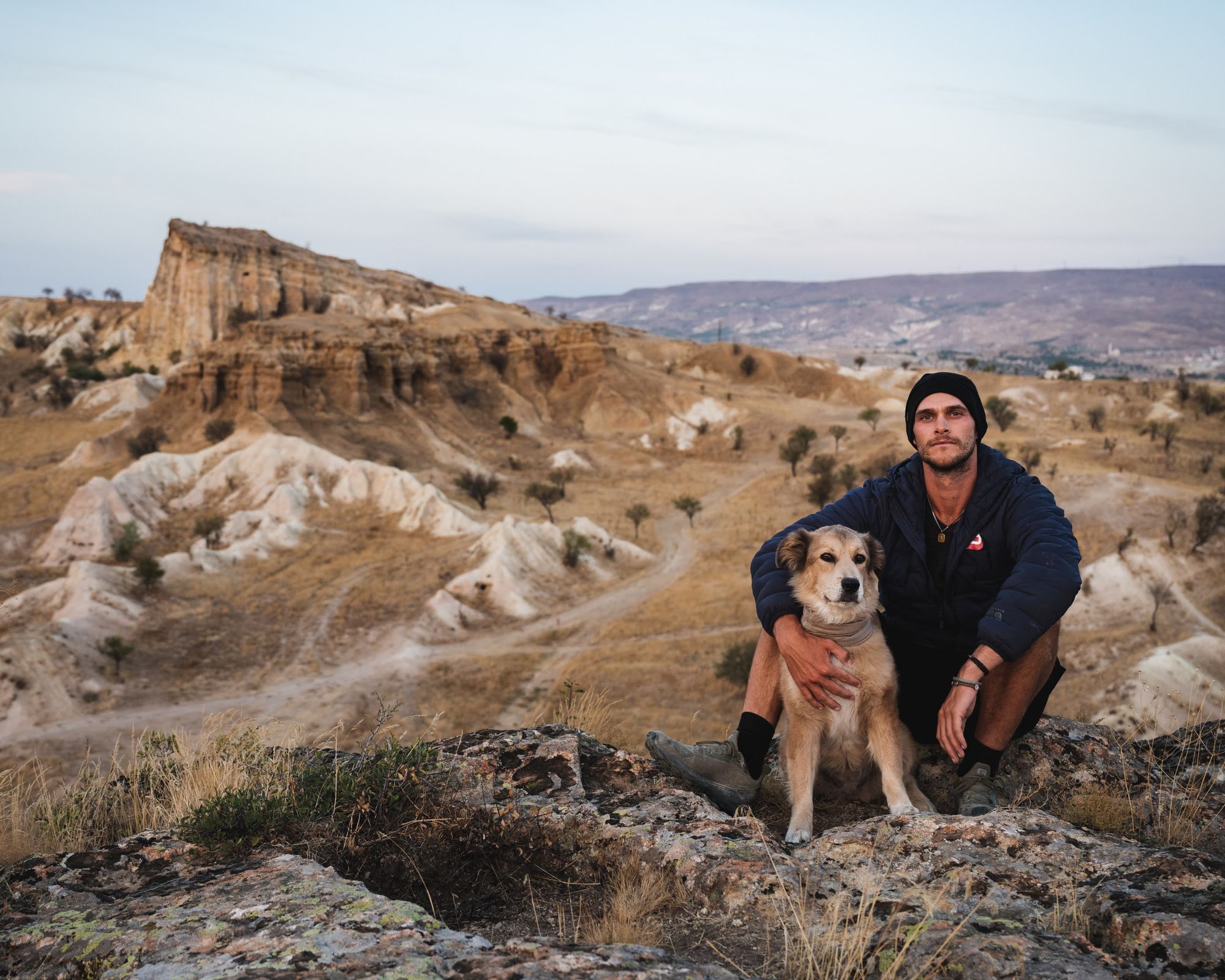
Hearing all these different perspectives gives you the opportunity to reflect on your own values and experiences. Since his walk, Tom says, he feels he’s a much more “expanded” person.
I personally spent eighteen months living in India, which meant I had ample opportunities to befriend people who lived there. While I can’t necessarily point to a single conversation that changed my understanding of myself, I’m definitely much more open-minded – and more interested in hearing the perspectives of people with different religious and political leanings than myself.
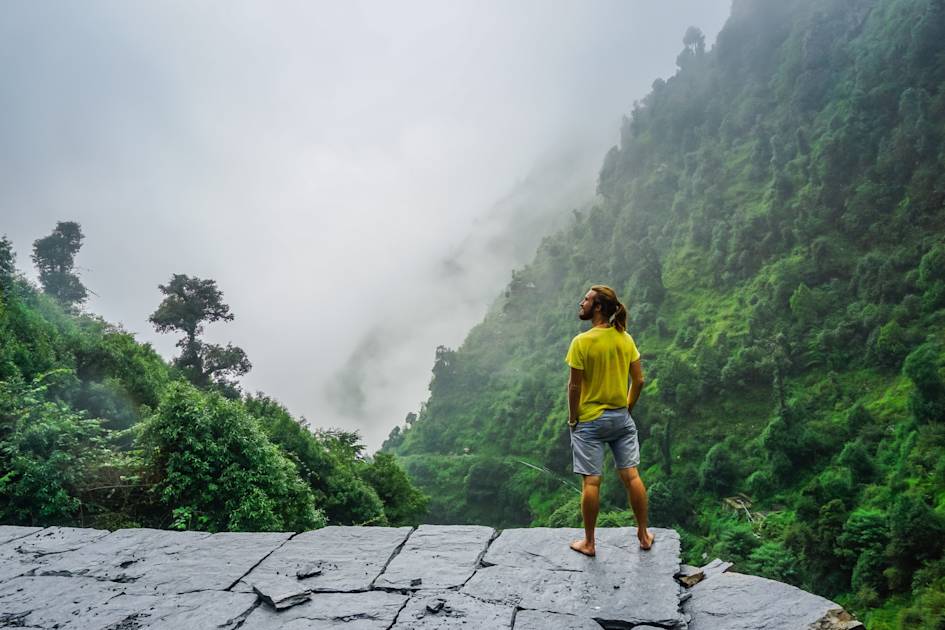
Some travellers go beyond mere conversation to really immerse themselves in the culture, religion or spirituality of another country. There’s a long-standing tradition of western travellers seeking enlightenment in the east, which reached its zenith during the Hippie Trail from the 1950s to 1970s. Westerners seeking new horizons, who wanted to escape conformity or the war draft, travelled east overland through Europe, the Middle East and Asia in search of spiritual enlightenment (and, it has to be said, cheap hash and psychedelics).
There’s a long-standing tradition of western travellers seeking enlightenment in the east
The Hippie Trail was a catalyst for two things: modern backpacking and the New Age movement; a growing interest in Eastern philosophies and practices, such as yoga, Ayurveda, reiki and meditation.
There are two ways of looking at the Hippie Trail. As Rory MacLean writes in Magic Bus: On the Hippie Trail from Istanbul to India, this was an eye-opening experience. To him, the people on the trail comprised “the first movement of people in history travelling to be colonised rather than to colonise”. However, scholars such as Shreena Gandhi argue that it’s part of “a history of Westerners cherry-picking customs, traditions, and practices to serve their needs.” In short, finding yourself in this way could be considered culturally appropriative, especially if you’re choosing the bits you like and ignoring everything you don’t.
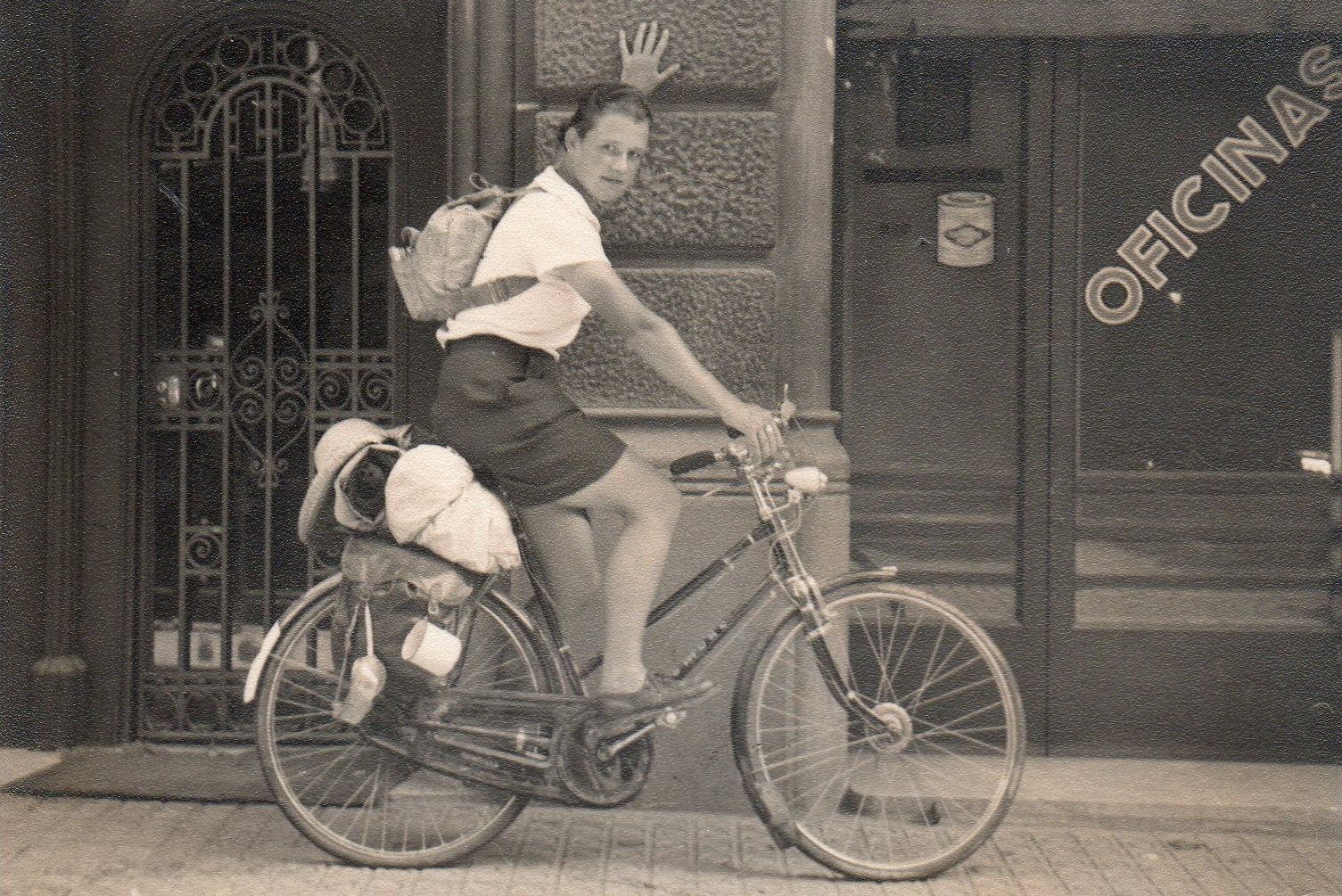
Of course, not everyone travelling from Europe to Asia identified as a hippie, and not everyone was looking for transcendence. Some people were in search of adventure, which is arguably a way to find a stronger, more resilient version of yourself. One such person was Dervla Murphy, who cycled all the way from her native Ireland to India in 1963 at the age of 32. She carried with her a mere two panniers’-worth of kit, and a pistol to protect herself.
It’s a journey she makes light of in her published diary of the trip, Full Tilt: Ireland to India with a Bicycle, stating “I simply wanted to enjoy myself by seeing the world.” But freak cold weather in Europe meant she was often struggling through snow and high winds, an experience that required drawing on infinite reserves of courage and determination.
The completely unbroken solitude and the absence of anything recalling humanity produce a unique feeling of liberation
Although the diary describes many of the people she met along the way, it’s when Dervla is alone in nature that she is at her most self-reflective, coming closest, perhaps, to 'finding herself'.
“The completely unbroken solitude and the absence of anything recalling humanity produce a unique feeling of liberation as one moves slowly through these tremendous gorges,” she wrote, of her journey through Pakistan’s rugged Gilgit region.
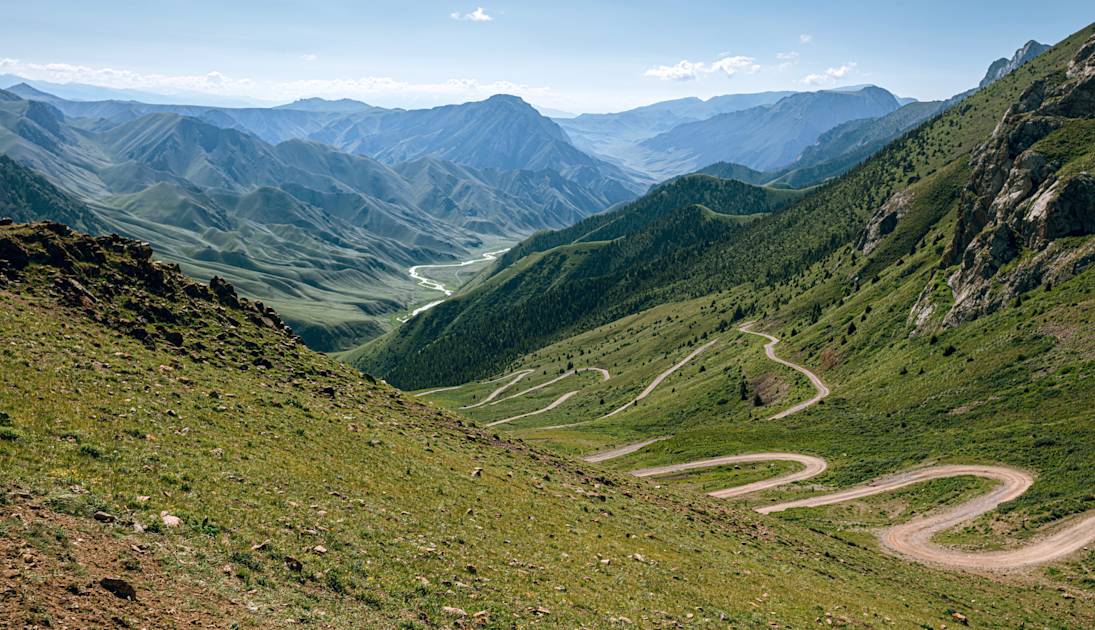
It’s this “feeling of liberation” that Dervla was searching for, and which she pursued on subsequent cycling trips. It is what many modern adventurers are looking for too: like Dervla they want to push their physical limits; to enjoy independence; and to gain perspective by immersing themselves in nature.
I would argue that, a lot of the time, people set themselves physical challenges of this ilk on more than just a whim. There has to be something driving you – a lust to explore, the need to prove yourself, or a desire to dig deep and discover previously hidden depths.
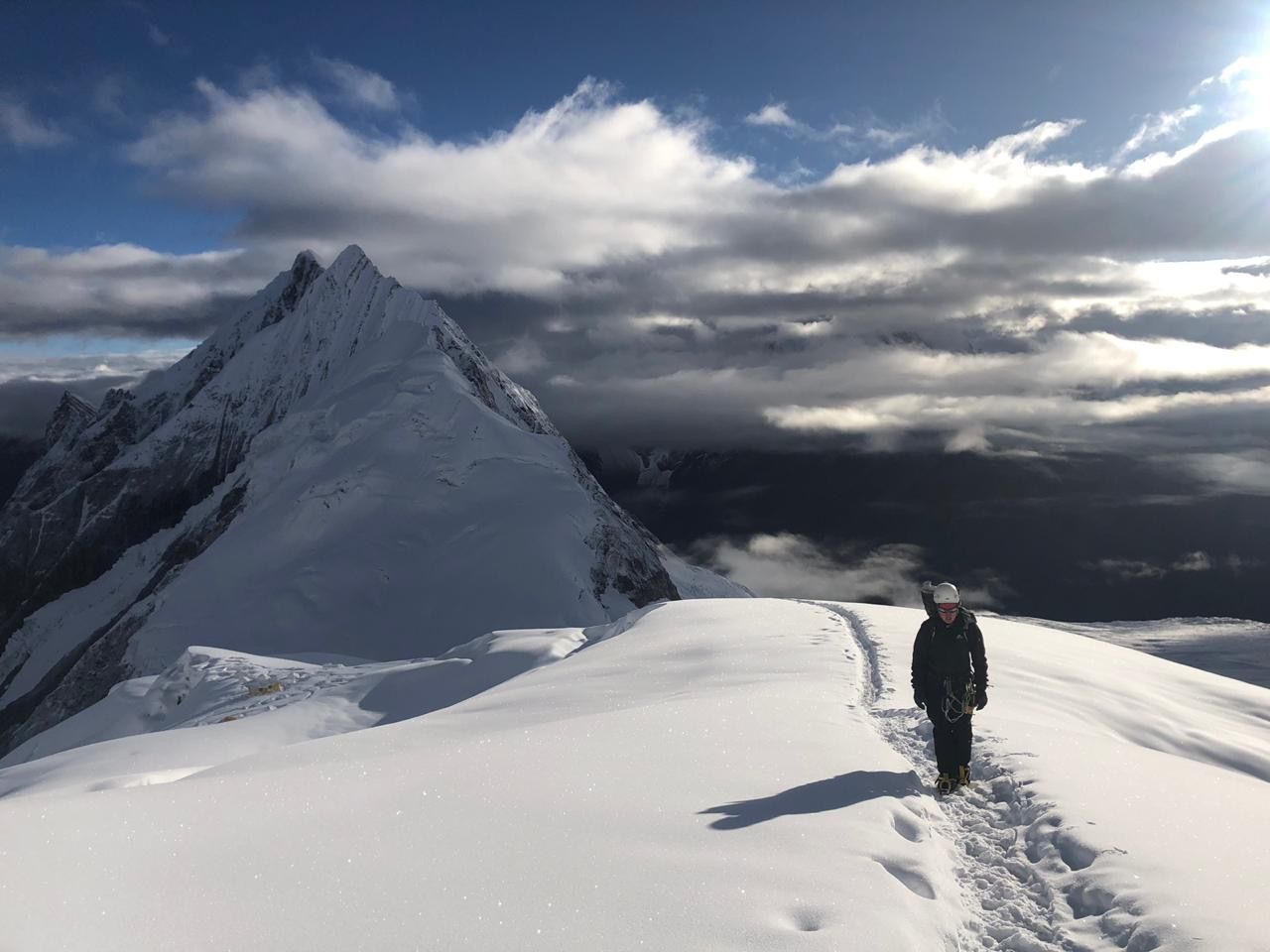
Jessica Hepburn, for example, got into adventuring at the age of 43, after 11 failed attempts at IVF and the knowledge that she would never become a mother. Adventure helped her find herself after losing herself during a decade that she refers to as “Project Baby”. She swam the English channel and, later, climbed Mount Everest.
Adventure helps you make the most of the life that you've got in the face of the things you haven't got
“The sea and the mountains have been such journeys of redemption for me – they've created a very profound relationship between me and nature,” she told me. “My relationship with nature was broken, because I felt nature hadn't given me a baby. Adventure helps you make the most of the life that you've got in the face of the things you haven't got.”
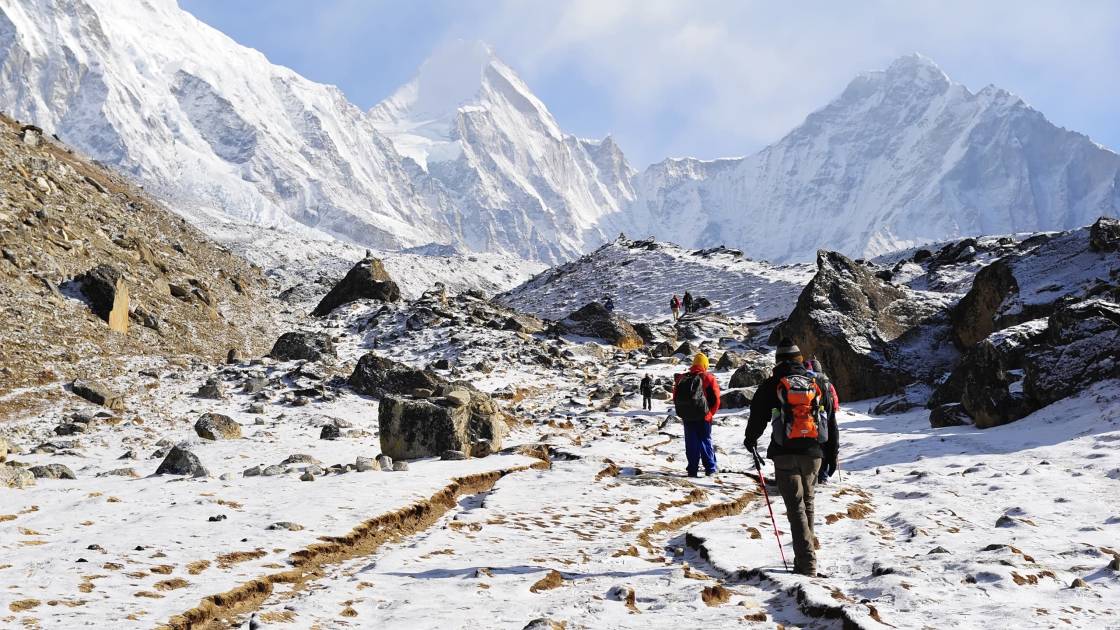
Big adventures, like climbing Everest or cycling halfway across the world, are bound to have a big impact on you. You’ll return a different person to the one who left. But what of the shorter and less adventurous trips you take? Can you find yourself in under a week, and does it matter if you don’t?
A couple of years ago, I took an entirely frivolous trip to Crete. The fierce July heat kept hiking to a minimum, and I spent most of my time napping, eating and swimming in the sea. I did not find myself. I did find a lot of delicious mezze, though.
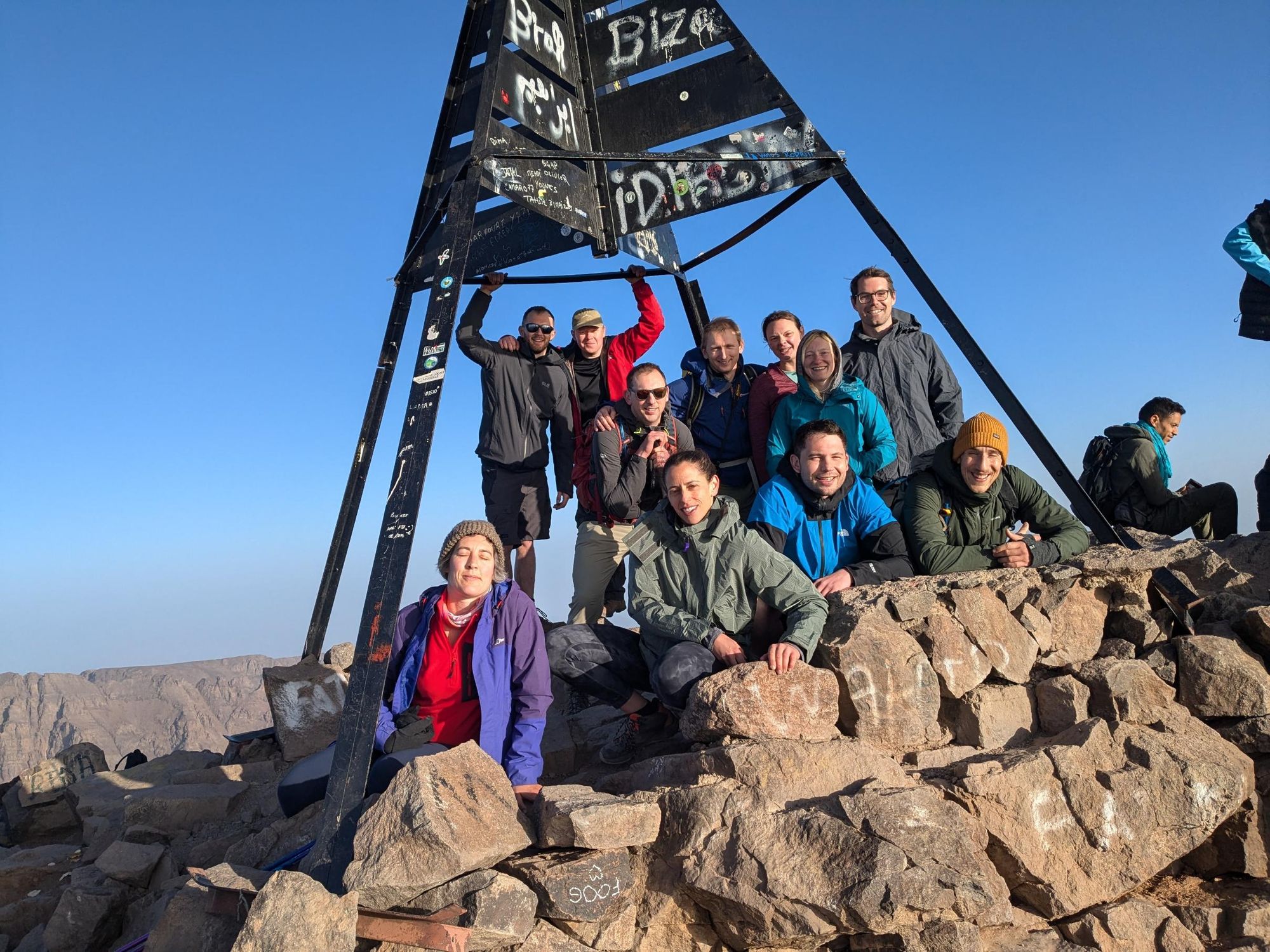
More recently, I climbed three peaks in Morocco’s Atlas Mountains: Toubkal (4167m); Timzguida (4089m) and Ras (4083m). The trip pushed me to my limits, making me confront and process a difficult experience I’d recently gone through. I mentioned how I was feeling to the people I was travelling with, many of whom opened up to me in exchange, sharing their own fears and vulnerabilities. Considering the brevity of the trip, it was remarkably profound.
But does that mean that my trip to Morocco was more valuable than my trip to Crete? Personally, I don’t think so. We don’t have to constantly plumb the depths of our psyches – sometimes it’s far preferable to lie in the sun or go for a dip in the sea.
I have to remind myself that it’s okay to spend time relaxing and doing nothing. That in fact, doing nothing is important
The older I get, the more I have to remind myself that it’s okay to spend time relaxing and doing nothing. That in fact, doing nothing is important. Holidays like my trip to Crete help you recharge, give you the energy that’s required to tackle the daily trials of work, parenthood and more.

Of course, you never know what’s going to happen when you set out on your travels. Sometimes, when you’re expecting relaxation you might find adventure. Sometimes, when looking forward to the physical exertion of a hike, you might experience a moment of profundity. Other times, the highlight of your trip might be the delicious meal you had in a seafront taverna.
You certainly don't have to find yourself when you go travelling, but all of this uncertainty is part of the appeal of setting out into the unknown. As Gandalf tells Frodo in The Hobbit, “It's a dangerous business, Frodo, going out of your door. You step into the Road, and if you don't keep your feet, there is no knowing where you might be swept off to.”
Inspired? Check out our Adventures Across the World.


